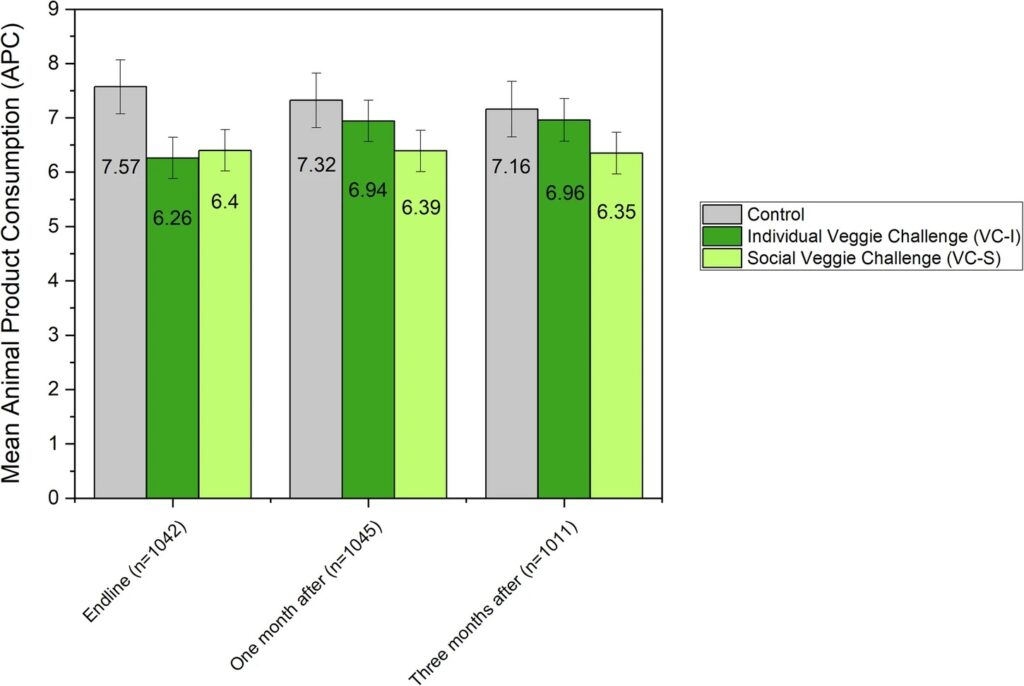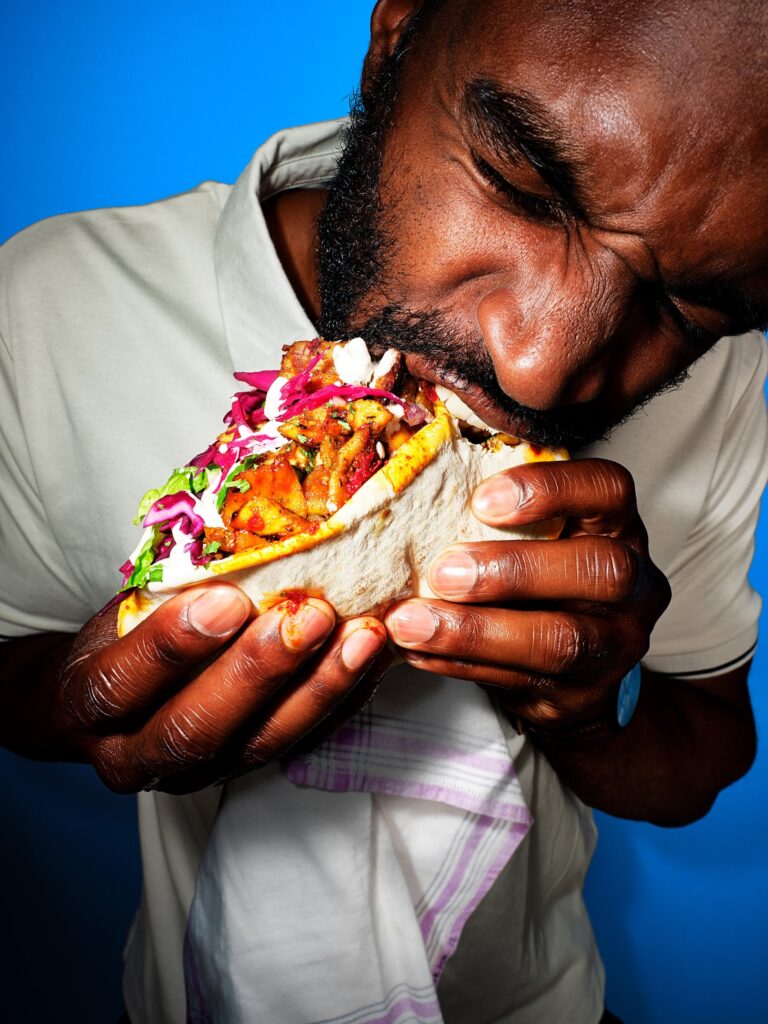Want to Stay Vegan After Veganuary? Get Your Friends & Family Involved
4 Mins Read
People taking dietary change challenges are more likely to stick to them months down the line if their loved ones participate too.
Around 25 million people participated in Veganuary, the month-long vegan challenge, across the world this January. But how many really stick to eating plant-based – or at least reducing their animal consumption – in the long term?
According to the campaign’s own research, a majority of participants. Six months after Veganuary 2024, over half (54%) of people who signed up said they had reduced meat consumption by at least 50%, while another 27% continued to remain vegan.
Now that we’re days away from the 2025 edition of the challenge, it’s worth asking: what could help more people stick to their vegan diet in the long run?
A study by researchers at Hasselt University and food awareness organisation ProVeg International might have the solution: your loved ones.
Published in the NPJ Climate Action journal, the analysis suggests that involving friends and family in monthlong challenges like Veganuary and Challenge 22 can be the push participants need to continue their commitment to cutting out meat.
Dietary change persists with support from loved ones

The study specifically explored ProVeg’s Veggie Challenge, investigating the difference between individuals going it alone, or enlisting others to accompany them in their journey. The challenge involves a mobile app where people can set goals to reduce animal protein intake over 30 days, for which they receive daily support and information about the climate and welfare impact of their dietary shift.
The researchers divided 1,213 participants from Belgium and the Netherlands into three groups: individuals, those joined by friends and family, and a control group.
In both cases of interventions, the consumption of animal-based foods was 16-17% lower than the control group at the end of the challenge, with meat intake falling even further (22-27%). However, the impact varied as time went on.
After a month, consumption of animal products among individuals bounced back to nearly reach the intake of the control group, while those doing the challenge with friends family did not witness any rebound. That trend continued three months later, with the participants in the social challenge cutting back on animal products by 11%, and meat by 25%.
The researchers found that those who chose the vegetarian or vegan goal instead of a ‘meatless days’ target on the Veggie Challenge app experienced a “significantly lower reduction” in animal protein consumption.
“Research into measures for behaviour change, such as providing information, often shows that it is difficult to change behaviour permanently,” said lead author Rosaly Severijns. “Our research shows that encouraging friends and family to get involved provides the social support needed to eat less animal products in the long term.”
Reaching beyond regular audiences is critical

Quantifying the environmental and financial impact of the interventions, the research revealed that the greenhouse gas emissions associated with the dietary changes reduced by at least 21% over the first three days of the challenge – a trend that persisted three months later.
The researchers further found that participants in the social intervention were more active in the app, indicating that the involvement of friends and family led to more diligent participation in the challenge. The social element could also have led to a more supportive environment outside the app to maintain the dietary changes.
Using social networks for behavioural change could be a promising pathway for reducing animal protein consumption, according to the study. App-based interventions, meanwhile, could prove to be a relatively cheap, feasible and effective way to reach a large audience and make various behaviour change techniques easily accessible.
“The results of this research surprised us. They motivate us to focus even more on groups in our work, instead of on individuals,” said Pablo Moleman, strategic director of ProVeg Netherlands. “We want to bring the Veggie Challenge even more to the attention of large or small communities: colleagues, friends or sports clubs… This research shows: healthier and more sustainable eating is something you do together, not alone.”
Governments and non-profit groups should target meat consumers by reaching beyond the regular audience of organisations like ProVeg, who are already interested in vegan diets, the researchers suggested. Additionally, repeating or extending the challenge through maintaining ‘streaks’ after the 30 days could be beneficial to stem the disappearing effect of the individual intervention.



